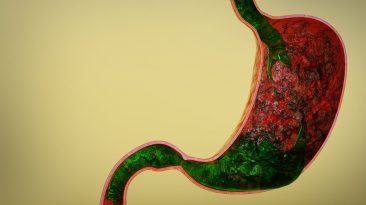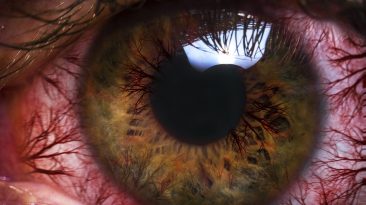Your brain can survive for several minutes after your heart stops. But what if your brain took a time-out and stopped working for five seconds? Would you be instantly brain-dead? What would happen to your other organs if you experienced this? And could your normal life functions resume when your brain begins working again?
Your brain is important. It controls your thoughts and movements, as well as all the bodily functions that keep you alive. This amazing organ can survive up to six minutes after your heart stops. But sometimes, the human brain can take a coffee break.
When most of the brain activity shuts down, you could be in a coma or vegetative state. These conditions could be temporary or permanent. But they’re different from your brain stopping completely.
If your brain stopped for five seconds, all your primary functions like pulse, breathing and blood pressure would shut down. But what would happen if your brain started working again? Could you go back to your everyday life?
I’m sorry to break it to you, but if your brain shut off for five seconds, you’d be brain-dead. And brain death is irreversible. Though at that moment, you might not look dead. You’d seem to be in a deep, deep sleep. So before declaring your brain-dead, your doctors would need to perform several tests.
They’d shine a light in your eyes to confirm that your pupils are no longer reacting. They’d also check whether you have any reaction to pain or if your gag reflex still kicks in. Once it is confirmed you have no pulse and no registered brain activity, you would be clinically dead. Sadly, nothing can be done to reverse this.
Your brain wouldn’t be able to come back to life five seconds later. But what would be happening to your body?
Without any medical intervention, brain death would lead to multiple organ failure, hypothermia and respiratory failure. Since your lungs no longer work, your body wouldn’t get any new oxygen. Your cardiac muscles would start to die. Within an hour or so, your heart would stop. But your death process wouldn’t end there.
About one week after your brain death, your kidneys would start to fail. And so would your immune functions. That’s because your brain would no longer be creating the hormones needed for all the biological processes in your body.
If there’s one bright side to all of this, at least you wouldn’t suffer. You wouldn’t feel anything. But that’s only because you’re completely dead. If you are a registered organ donor, the doctors would have methods to keep your body functioning for a long time even after brain death.
They would need to maintain a healthy environment for your organs, so they’d provide your body with necessary medications, hormones and fluids. And they’d keep you on a ventilator. This breathing machine would inflate your lungs with air to keep your heart beating. As long as there is oxygen, your heart can keep on pumping.
During this time, they’d cover your body in blankets to keep you warm. You would look like you were asleep. Once the doctors harvested all the organs they could, this treatment would cease. It would make no ethical sense to keep your body alive.
It would all be worth it because your organs would be available for patients desperately waiting for organ or tissue donations. And most organs come from brain-dead donors. But brain death doesn’t happen all that often. It occurs in only one out of every 200 hospital deaths. So you can see why organ transplants are so hard to come by.
Or I guess you could see if you weren’t, you know, brain-dead. But would it be any better if you were in a coma and never woke up?
Sources
- “Understanding Brain Death And Organ Donation | Finger Lakes Donor Recovery Network”. 2011. donorrecovery.org.
- “What’s The Difference Between A Coma And Brain Death?”. 2020. life-source.org.
- “Brain Death – Better Health Channel”. 2021. betterhealth.vic.gov.au.
- “Analysis Of The Complications Of 6 Brain-Dead Patients.”. Cho, Hyun Sung, Kook Hyun Lee, Sang Chul Lee, and Il Yong Kwak. 2021. Korean Journal Of Anesthesiology 29 (5): 718-723. ekja.org.
- “Survival Of Cardiac Function After Brain Death In Patients In Kuwait”. Al-Shammri, S., R.F. Nelson, R. Madavan, T.A. Subramaniam, and T.R. Swaminathan. 2003. European Neurology 49 (2): 90-93. doi:10.1159/000068506. pubmed.ncbi.nlm.nih.gov.


























